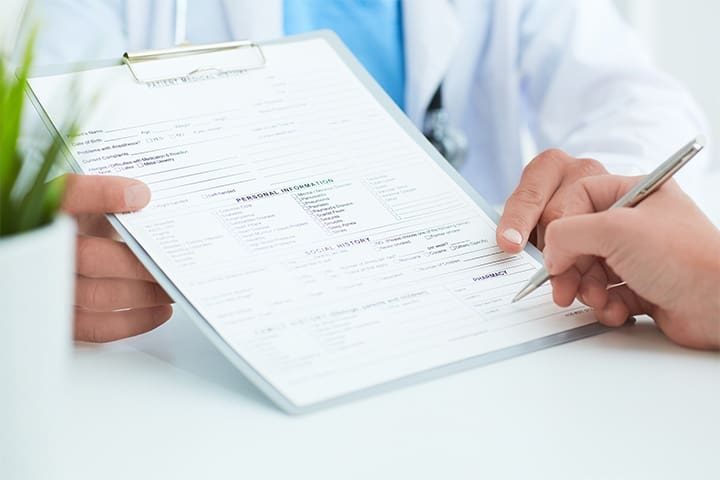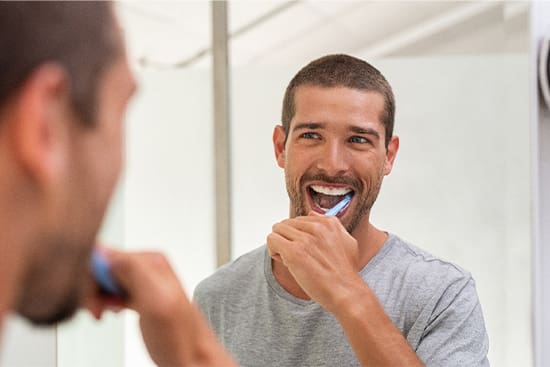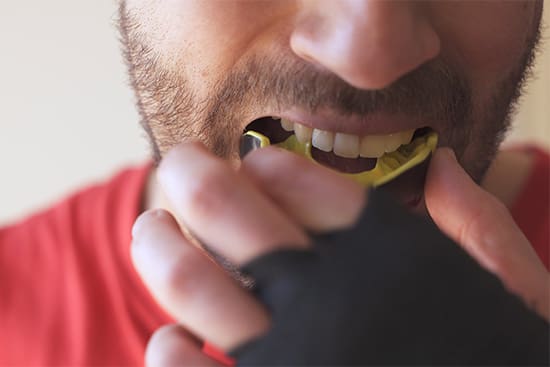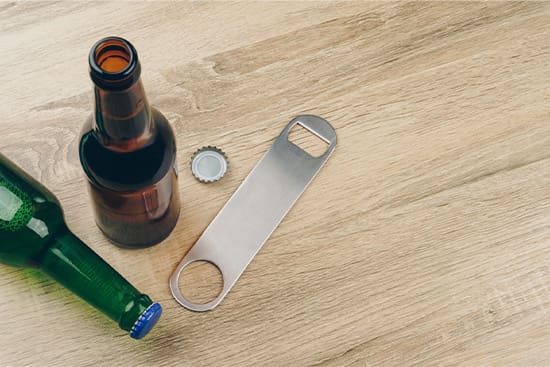Home » Emergency Dental Treatment near Me in Danvers, MA

As experienced family dentists, we provide a wide range of routine and preventive dental services here at Danvers Aesthetic Family Dentistry, but we also offer emergency care. We know that accidents and injuries can happen at any time, and our highly skilled dental team is here to help. If you’re experiencing a toothache or any out of the ordinary oral symptoms, don’t hesitate to contact our office as soon as possible so we can fit you into our schedule. We always try to see our emergency patients quickly, ensuring that you spend as little time experiencing discomfort as possible.

Sometimes, it can be difficult to know when it’s time to call an emergency dentist. Our team is here to help you make the best decisions for your smile, so don’t hesitate to call us even if it’s just to ask our opinion about whether or not you require an urgent visit. Below, we’ve also listed some of the most common dental emergencies we treat to help determine whether you require timely dental care.
Is my toothache a dental emergency? If the pain is severe, persistent, or accompanied by swelling, fever, or sensitivity to hot and cold, it’s likely an emergency. Toothaches caused by infection or abscesses need attention right away to prevent the problem from worsening.
How you should handle a toothache:
How we treat toothaches: At Danvers Aesthetic Family Dentistry, we’ll first examine your tooth to find the cause. Common treatments include fillings, root canals for infections, or, in severe cases, extraction. Our goal is to alleviate your pain and restore your oral health quickly and comfortably.
Learn More About Root Canal Therapy Learn More About Tooth Extractions Learn More About Gum Disease TreatmentIs a chipped tooth a dental emergency? If the chip is small and painless, it’s usually not an emergency. However, large breaks that leave sharp edges, or that are accompanied by pain need treatment quickly!
How you should handle a chipped tooth:
How we treat chipped teeth: Treatment at our office largely depends on the size of the chip. Small flaws can be repaired with dental bonding or veneers. However, larger chips may need a crown to restore the tooth’s function and appearance. No matter the damage, we’ll provide a solution that restores your smile!
Learn More About Restorative Dentistry Learn More About Dental VeneersIs a cracked tooth a dental emergency? While minor can usually wait a few days, even they can worsen or lead to infection if left untreated. So, it’s best to treat every cracked tooth as if it was an emergency and get care as soon as possible.
How you should handle a cracked tooth:
How we treat cracked teeth: At our Danvers dental office, treatment depends on the severity of the crack. Options include dental bonding, a crown to restore strength, or root canal treatment if infection is present in the pulp of the tooth. For extensive damage, extraction may be necessary, but we will always try to preserve your tooth whenever possible.
Learn More About Restorative Dentistry Learn More About Tooth ExtractionsAre Very Sensitive Teeth a Dental Emergency?
They can be, but not always. While occasional sensitivity is common, sudden or severe symptoms may indicate an underlying problem like decay, a cracked tooth, or gum recession.
How You Should Handle Very Sensitive Teeth:
How We Treat Very Sensitive Teeth:
Treatment depends on the cause. We may recommend a filling or a root canal if the sensitivity is due to nerve damage. Whatever the cause may be, our emergency dentists in Danvers will help you find fast, lasting relief.
Is My Knocked-Out Tooth a Dental Emergency?
Yes! A knocked-out tooth is one of the most urgent dental emergencies. Acting quickly can make the difference between saving and losing the tooth. If you’re dealing with a lost tooth in Danvers, contact our team immediately to see our trusted dentists for emergency care.
How You Should Handle a Knocked-Out Tooth:
How We Treat Knocked-Out Teeth:
If the tooth is intact and brought to us quickly, we may be able to reimplant it. If not, we’ll explore tooth replacement options like a bridge or dental implant. When searching for help with a lost tooth in Danvers, our team is ready to act fast.
Is a Lost Filling or Crown a Dental Emergency?
In the immediate sense, no, but both can leave your tooth vulnerable to damage or infection if left untreated for too long. If you’re dealing with a lost dental crown in Danvers, don’t wait. Call us right away to schedule an appointment.
How You Should Handle a Lost Filling or Crown:
How We Treat Lost Fillings or Crowns:
Our team will examine the tooth and either reattach the original restoration or replace it entirely.
Is My Broken Denture a Dental Emergency?
Yes. Damaged dentures can affect your ability to eat, speak, and smile. They also put your gums at risk for irritation or injury, so you should give us a call when you can.
How You Should Handle a Broken Denture:
How We Treat Broken Dentures:
Once you arrive, we’ll take note of the damage to your prosthetic and recommend repair or replacement to restore your smile as quickly as we can.
Is a Loose Permanent Tooth a Dental Emergency?
Yes. Adult teeth should never feel loose. This could be a sign of injury, gum disease, or infection.
How You Should Handle Loose Permanent Teeth:
How We Treat Loose Permanent Teeth:
The faster you see us, the more likely it is that we can save your tooth. We’ll give your mouth a thorough assessment, then stabilize the tooth and treat any underlying issues such as gum disease.
Is an Injury to the Gums, Lips, or Tongue a Dental Emergency?
It can be, especially if bleeding is severe or doesn’t stop after 10–15 minutes of pressure. In that case, you should go to your nearest emergency room for treatment instead of calling us.
How You Should Handle an Injury to the Gums, Lips, or Tongue:
How We Treat Injuries to the Gums, Lips, or Tongue:
We’ll assess the wound, stop any bleeding, and determine if stitches or further care is needed.
Is Jaw Pain a Dental Emergency?
Yes, especially if the pain is sudden, severe, or affecting your ability to eat or speak. It may be linked to TMJ issues, an abscess, or trauma.
How You Should Handle Jaw Pain:
How We Treat Jaw Pain:
We’ll perform an exam to identify the cause and may recommend TMJ treatment like BOTOX to help you find relief.
Is Something Stuck Between My Teeth a Dental Emergency?
It can be if it’s causing pain or swelling, or if you can’t remove it on your own, and it may cause damage to your teeth.
How You Should Handle Something Stuck Between Your Teeth:
How We Treat Something Stuck Between Your Teeth:
We’ll safely and gently remove the object and check for any gum or tooth damage. Left untreated, debris between teeth can lead to infection or decay, so we want to be sure to avoid that.

Because every dental emergency can vary so drastically, there’s no set cost to visiting an emergency dentist. Our team will provide you with an estimate to help you better understand any associated costs with your exam, treatment, and any follow-up visits that may be necessary. We’re also happy to help you navigate your dental insurance plans as well as discuss financing options.

Dental emergencies can be painful, stressful, and expensive, but many are completely preventable with good oral care and healthy habits. At Danvers Aesthetic Family Dentistry, we believe the best emergency is the one that never happens. By taking simple, proactive steps, you can protect your teeth, take control of your oral health, and stop painful dental emergencies before they start. Read more below to see how.

Routine dental checkups are one of the easiest ways to prevent emergencies. At our Danvers dental practice, our team looks for early signs of decay, infection, or bite problems that could turn into more extensive issues later.
Catching these problems early means easier, more affordable treatment in the future. That’s why we recommend visiting at least twice a year for exams and cleanings to keep your smile healthy and less vulnerable to issues like decay and gum disease.

If regular dental visits are one side of the oral care coin, your dental hygiene at home is the other. Brushing and flossing every day helps prevent dental emergencies like infections and abscesses from forming.
So, be sure to brush twice a day with fluoride toothpaste, floss daily to remove food particles between your teeth, and rinse with an alcohol-free antibacterial mouthwash. Being consistent with these small steps can go a long way towards keeping your teeth strong and your mouth healthy.

As the old adage goes, “you are what you eat.” Certain foods can increase your risk of cracked teeth or weaken your tooth enamel, making cavities more likely.
Avoid chewing on items like ice, popcorn kernels, or hard candy to protect the structure of your smile. At the same time, try to limit sticky, sugary treats that cling to your teeth and feed bacteria.
You don’t have to cut these foods out of your diet completely—just use caution and moderation.

If you play sports or grind your teeth at night, a mouthguard can be your best defense against chipped or broken teeth. However, it’s important to choose the right type.
Sports mouthguards can be bought at sporting goods stores and protect during contact sports like football, basketball, and soccer. Meanwhile, nightguards are customized appliances crafted by our team to reduce damage from nighttime grinding or clenching.

Everyone is guilty of using their teeth to nip at a bag of chips or chew on their fingernails, but these habits don’t have to continue. In fact, they shouldn’t. While it may seem convenient to use your teeth to loosen bottle caps, it’s a fast track to a dental emergency.
Teeth are meant for chewing food, not opening packaging! Try to keep the proper tools for every task nearby to avoid damaging your smile.
No, and in fact, if your toothache suddenly vanishes, that could actually mean that the problem has gotten worse!
Unlike other parts of your body, your teeth can’t fight off infection on their own. Without treatment, conditions like cavities or infections will only spread. If the condition reaches the area deep inside your tooth, your dental nerves may become damaged – hence why you might stop feeling pain. Basically, a toothache could be a sign of a serious oral problem, so it’s important to call us as soon as possible for this dental emergency!
Yes, patients often appreciate the relief they experience after a tooth extraction – though we generally only recommend it as a last resort option.
The best course of action for your oral health is always going to be to preserve your natural tooth when possible. Tooth replacement options have become impressively advanced over the years, but a natural pearly white will triumph over these solutions every time. That said, a tooth extraction can be beneficial in cases where a tooth is too damaged to be salvaged, risks spreading decay or infection to neighboring teeth, or is contributing to overcrowding. Rest assured, we’ll take all this information into account when recommending treatment!
Absolutely not! Never, ever pop a dental abscess on your own – in fact, try your best not to touch it at all.
An abscess is essentially a pocket of puss and bacteria that often forms when an infection is present. Popping it like a zit will only expose your mouth to more bacteria, further irritate the area, and potentially spread the infection. This is definitely a dental emergency, so don’t hesitate to contact us if you notice an abscess near your gumline!
While you could probably wait a day or two to take care of your chipped tooth, it should still be addressed in a timely manner, even if it doesn’t hurt.
The problem with a dental chip isn’t so much that it will spread like other oral conditions. Instead, the danger is that it could be exposing the more sensitive layers of your tooth to bacteria, increasing your risk for developing these conditions, or could become damaged further. Schedule an appointment with us, and we’ll make sure your pearly white gets the protection it needs to remain intact!
"*" indicates required fields